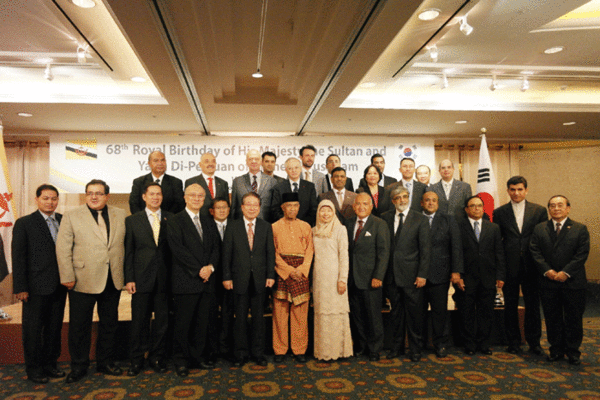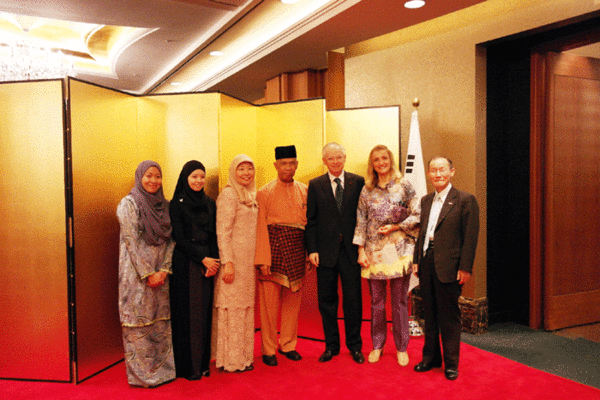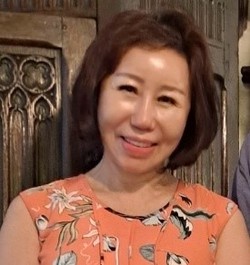Says President Moon Jae-in at a summit meeting with Brunei counterpart
By Joy Cho (chairperson and feature editor)
President Moon Jae-in said, "Brunei Darussalam is pursuing her ‘Vision 2035’ to create new growth engines in moving beyond being a resource-rich country." Speaking at the -ROK Commemorative Summit in Busan on Nov. 24, 2019, President Moon then added, "If we harmoniously fulfill Vision 2035 and Korea's New Southern Policy, we can expand the horizons of our cooperation to the next-generation industries and achieve common prosperity."
As was exemplified in the statement of President Moon, Korea and Brunei Darussalam has a great deal of potential for a drastically increased win-win cooperation for mutual benefit.

In response, Sultan Hassanal Bolkiah said, “Korea is a crucial and invaluable partner in the region for ASEAN. We will strive to achieve synergy between Brunei's Vision 2035 and Korea's New Southern Policy."
President Moon and Sultan Bolkiah agreed to expand bilateral cooperation to industries beyond infrastructure and energy.
President Moon then said, "Following the opening of the RIPAS Bridge, a symbol of bilateral cooperation, a Korean corporation is taking part in the construction of the Temburong Bridge, the longest in Brunei."
Moon said, "The potential for bilateral cooperation is boundless in industries such as information and communications technology (ICT), smart cities, e-government, national defense and the defense industry."
Moon also added that his administration is striving to make the Demilitarized Zone an international peace zone and to achieve complete denuclearization and permanent peace on the peninsula. Through these efforts, he said, Korea will become a bridge nation that leads peace and prosperity on both land and sea.
According to the Korean Ministry of Foreign Affairs, Brunei Darussalam, is a small country is a country with a population of 450,000, which is located on the north coast of the island of Borneo in Southeast Asia.
Its territory is fully covered with tropical jungles, but in Bandar Seri Begawan, one can discover modern skyscrapers and beautiful mosques.
Rich in petroleum and natural gas, the country allows its people to live a quality life. In 2019, Brunei scored 0.838 in UN Human Development Index 2019, which translates into the second place in ASEAN countries, only behind Singapore, and the 47th place among 189 countries and territories.
With a focus on ASEAN centrality, Brunei is nurturing relationships with countries all over the world.
Brunei participated in UN peacekeeping operations in Cambodia and Lebanon, and it also signed the CPTPP in March 2018.
When one arrives at the Brunei International Airport, one can easily find signs in Korea. You can discover Korean foods in local supermarkets, and people talk about Korean dramas and Korean pop songs.
In 2019, more than 20,000 joined the Korean Festival for a genuine Korean experience.
Temburong Bridge, a technological feat constructed by Korean engineers, is connecting the lands of Brunei across the sea. The Bruneians are famous for their kindness to foreigners, but you will be given a special welcome if you are from Korea.
Korea is the 4th country to establish a diplomatic relationship with Brunei Darussalam. Both countries closely cooperated in the international arena such as the United Nations, ASEAN and APEC. In particular, as a coordinating country for ROK-ASEAN relationship from 2018 to 2021, Brunei has been a partner of Korea’s New Southern Policy. The year of 2019 was a milestone in ROK-Brunei relationship, with His Excellency President Moon Jae-in’s state visit to Brunei Darussalam and His Majesty Sultan Haji Hassanal Bolkiah’s state visit to Korea.

The year of 2024 marks the 40th anniversary of the establishment of the diplomatic relationship between the two nations.
According to Wikipedia, Brunei Darussalam has the second-highest Human Development Index among the Southeast Asian nations, after Singapore, and is classified as a developed country.
Crude oil and natural gas production account for about 90% of its GDP. About 167,000 barrels (26,600 m3) of oil are produced every day, making Brunei the fourth-largest producer of oil in Southeast Asia. It also produces approximately 25.3 million cubic meters (890×106 cu ft) of liquified natural gas per day, making Brunei the ninth-largest gas exporter in the world. Forbes magazine also ranks Brunei as the fifth-richest nation out of 182, based on its petroleum and natural gas fields.
Substantial income from overseas investment supplements income from domestic production. Most of these investments are made by the Brunei Investment Agency, an arm of the Ministry of Finance. The government provides for all medical services, and subsidizes rice and housing.

The national air carrier, Royal Brunei Airlines, is trying to develop Brunei as a hub for international travel between Europe and Australia/New Zealand. Central to this strategy is the position that the airline maintains at London Heathrow Airport. It holds a daily slot at the highly capacity-controlled airport, which it serves from Bandar Seri Begawan via Dubai. The airline also has services to major Asian destinations including Shanghai, Bangkok, Singapore and Manila.
Brunei depends heavily on imports such as agricultural products (e.g. rice, food products, livestock, etc.), vehicles and electrical products from other countries. Brunei imports 60% of its food; of that amount, around 75% come from other ASEAN countries.[138]
The government of Brunei has also promoted food self-sufficiency, especially in rice. Brunei renamed its Brunei Darussalam Rice 1 as Laila Rice during the launch of the "Padi Planting Towards Achieving Self-Sufficiency of Rice Production in Brunei Darussalam" ceremony at the Wasan padi fields in April 2009.

